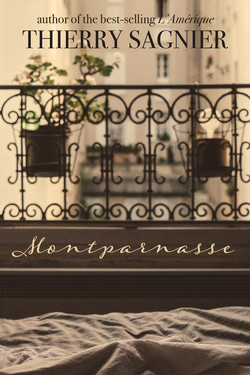Читать книгу Montparnasse - Thierry Sagnier - Страница 15
На сайте Литреса книга снята с продажи.
ОглавлениеChapter 10
The postman’s latest tirade was against the Bretons.
James Johnson had been in France long enough to know that every decade or so, one or another region fomented a resurgence of local identity. This month, it was the Bretons, inhabitants of the French teapot’s spout, a hardy lot of farmers and fishermen who acquitted themselves honorably during the war. They spoke several local patois and sought to preserve the cultures of their forefathers. The Parisians considered them country bumpkins.
A few days earlier, a delegation of Breton village heads had presented a list of demands to the Elysée and threatened general strikes if their wishes were not met. This infuriated Postman Lefebvre, a third-generation Parisian who, like many of the capital’s natives, truthfully believed himself part of the French elite. Lefebvre’s opinion was that no culture existed beyond the Paris city gates and he had no patience for illiterate peasants who should grow artichokes instead of making ultimatums.
Monsieur Lefebvre questioned Johnson at length on whether similar problems existed in the U.S. The American was often short of answers, responding that since his country was a nation of immigrants, Americans had learned to live with each other catch-as-catch-can. What, Lefebvre had demanded, of the Negroes? Wasn’t that what the great civil insurrection was about, meeting their demands? The mailman was fascinated by American Negro musicians and assumed all Negroes could sing, dance, and play the banjo or trumpet. Johnson pointed out that most Negroes in America were poor, uneducated, and in menial jobs. Yes, they had on several occasions made demands to the U.S. government and continued to do so. M. Lefebvre nodded his head vigorously; they were like the Bretons.
Johnson knew many French citizens, M. Lefebvre included, who hovered between gratitude and mortification when it came to Americans. The Great War was an aching fresh wound. Calculations by both French and U.S. authorities put the number of American dead at more than 110,000. This was dwarfed by the number of French lives lost; almost a million-and-a-half at latest count, but already revisionists on both sides of the Atlantic were claiming the Allied powers could have won the war without U.S. involvement. M. Lefebvre knew better. He may have despised his country’s leaders for being shamefully inadequate during the horrendous conflict, and he might, deep in his heart, have resented the American rescue of France, but he would never forget the sacrifices made by young Americans to save his nation, and so it pleased him to hear his two countries had much in common, including Bretons here and Negroes there.
